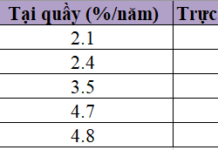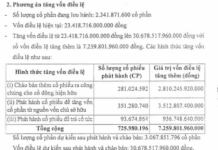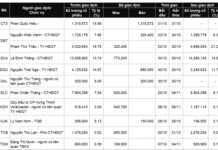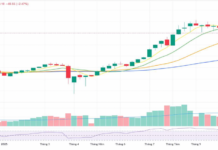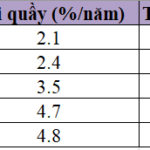According to current regulations, the retirement age for workers under normal working conditions is adjusted following a phased schedule.
Before 2021, the retirement age for male workers was 60, and for female workers, it was 55. From 2021 onwards, the retirement age for workers under normal conditions is 60 years and 3 months for men, and 55 years and 4 months for women.
After 2021, the retirement age increases by 3 months each year for men and 4 months for women. This phased increase continues until the retirement age reaches 62 for men by 2028 and 60 for women by 2035.

From 2026, kindergarten teachers may retire earlier if they wish.
Starting January 1, 2026, the 2025 Law on Teachers comes into effect with several changes. Notably, there are specific provisions regarding retirement age for educators. Some educators may retire earlier, while others may retire later. Specifically, Article 26 of the 2025 Law on Teachers outlines the retirement regime for educators as follows:
Educators in kindergarten institutions who wish to do so may retire at a younger age than the standard retirement age for workers under normal conditions, but not more than 5 years earlier. If they have contributed to social insurance for 15 years or more, their pension percentage will not be reduced due to early retirement.
Many Cases Allow for Retirement at a Later Age
Article 27 of the 2025 Law on Teachers outlines the regime for retirement at a later age for educators (in public educational institutions), specifically for those holding the titles of Professor, Associate Professor, or with a PhD, and educators working in specialized fields.
Accordingly, the regime for retirement at a later age is implemented when the educational institution has a need; the educator is in good health, volunteers, and meets the institution’s standards and conditions.
The duration for retirement at a later age is as follows: Not more than 5 years for educators with a PhD; not more than 7 years for Associate Professors; not more than 10 years for Professors. During this extended retirement period, educators do not hold managerial positions.
Additionally, the Government will detail the procedures and processes for retirement at a later age, including provisions for educators in specialized fields.
“Retirement in 2025: Unlocking the Pension Mystery”
The retirement age for workers in normal working conditions will increase to 61 and a half years for men and 57 years for women by 2026, according to Decree 135/2020/ND-CP, Article 4, Clause 2. This raises an important question: how will retirement benefits be calculated for those who meet these eligibility requirements and have contributed to social insurance (SI) for 26 years?
“Early Retirement Incentives: Encouraging a New Chapter without Financial Penalties”
Discussing the draft Law on Teachers, many delegates expressed their interest and provided suggestions regarding the retirement age for teachers.







